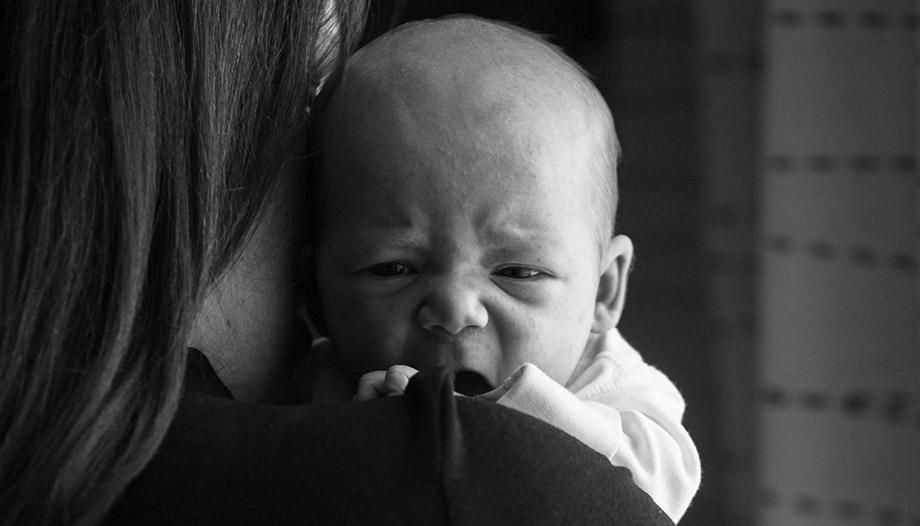For those of us who profess the Catholic faith, the arrival of a child into the world is invariably a blessing from God, a tangible manifestation of divine love that reverberates in the innocence of a new soul. However, this joy also carries with it an overwhelming responsibility, for the soul entrusted to us is an even greater treasure than those in the parable of the talents.
It is not enough, then, to provide food and shelter for the new member of the family, or even to shower him with affection or laughter: it is necessary to nourish his spirit, to lead him along the narrow path of the Gospel in a world that will often offer him idols of clay and gold. And what better way to offer him this nourishment than at Mass, where the Eucharistic sacrifice takes place, which, in the words of the Lumen Gentiumis "the source and summit of the whole Christian life" (n. 11)?
However, it's a long way from words to deeds, and parents quickly realize the logistical difficulties involved in bringing an excited, jaded, squirming, shaking and screaming to church without saying "water under the bridge" (all in the space of a minute).
As the proud father of a one-year-old child, I can attest that his short linguistic register does not prevent him from participating "actively" in the Mass -not often at the top of his lungs. That's just the way it is. And then, with his face flushed with embarrassment and his arm numb from carrying the child, one begins to shuffle some subterfuge: "Is there any point in bringing the child? If he behaves badly, he must be bored. Maybe it is better to leave him, after all, he is still too young to know what is going on".
And is it really so small? Who is obliged to hear Mass? Let's not get tangled up, first things first. Canon 11 of the Code of Canon Law stipulates that the ecclesiastical laws oblige the baptized who have the use of sufficient reason, an assumption that is updated at the age of seven. Therefore, here is the first answer of this article: if our son has already reached that age, he has the duty to hear Mass, so let us not hesitate any longer and let us take him, however overwhelming it may be.
Having resolved this question, let us now consider the case of infants and children under the age of seven. On the one hand, it is undeniable that their tender age exempts them from the canonical obligation to hear Mass; on the other hand, there is no magisterial (or pastoral) provision that forbids their wearing - or even discourages it - and there is a certain consensus among people of proven prudence and right judgment on the advisability of this practice. The words of St. John Paul II in his apostolic exhortation Ecclesia in America are clear: "The child must be accompanied in his or her encounter with Christ, from baptism to first communion, since he or she is part of the living community of faith, hope and charity" (n. 48). In the final analysis, we are dealing with a purely prudential question.
After this clarification, I now allow myself - out of prudence, for the record - to break a lance for the participation of the little ones in the Holy Mass. First, because human beings are creatures of habit and, just as babies recognize their home as a safe and stable refuge in which their parents dwell, they should also feel comfortable in the temple, where their heavenly Father dwells.
Second, because, as all of us who have young children (or remember our passage through childhood) know, long before they are of sound mind, little ones begin to inquire about the activities to which they are exposed.
Perhaps the child is not able to abstract the mystery of transubstantiation, but he can understand that the clouds that the mouth of the botafumeiro gives off are our prayers rising towards God or that, if we genuflect, it is because we are before Someone to whom we owe the most absolute reverence and the greatest respect.
Moreover, as with baptism, it is not necessary to understand something perfectly in order to reap its spiritual benefits. And third, because going to Mass together instills grace into the family unit and deprives us of excuses for skipping out on Sundays - and holy days - for as the Irish priest Patrick Payton, a servant of God, wisely noted: "The family that prays together stays together".
On the other hand, the participation of the little ones in the Mass not only brings gifts for them and their families, but also benefits the entire parish. Their mere presence is a living testimony that there are still people willing to sanctify themselves through a marriage open to procreation, in accordance with the Genesis mandate to be fruitful and multiply.
Let us not forget that the Church, the mystical body of Christ, does not end with us, but extends also to our descendants, to whom we must hand on the traditions that have been handed down to us since apostolic times.
So the next time we hear that baby crying at Mass, let us not snort with disgust or roll our eyes. Rather, let us rejoice in the knowledge that the Church is throbbing and alive, and that the gates of hades shall not prevail against her.
Lobbyist for the Missouri Catholic Conference(USA) and researcher in legal history. D. in Economics and Government from the UIMP and Master in Law from the UIMP. University of Notre Dame.











